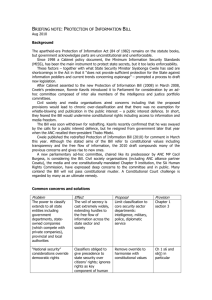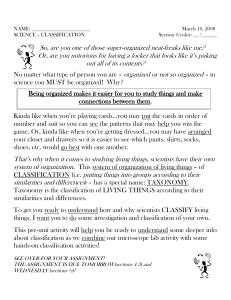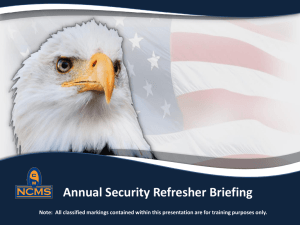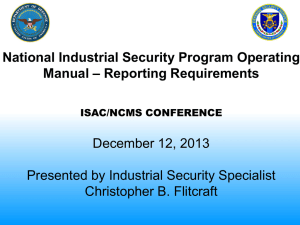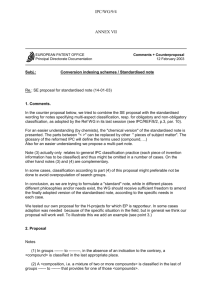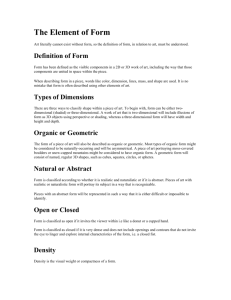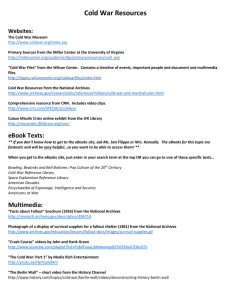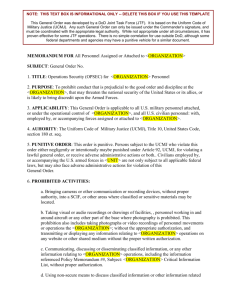Gabriella Razzano`s presentation
advertisement
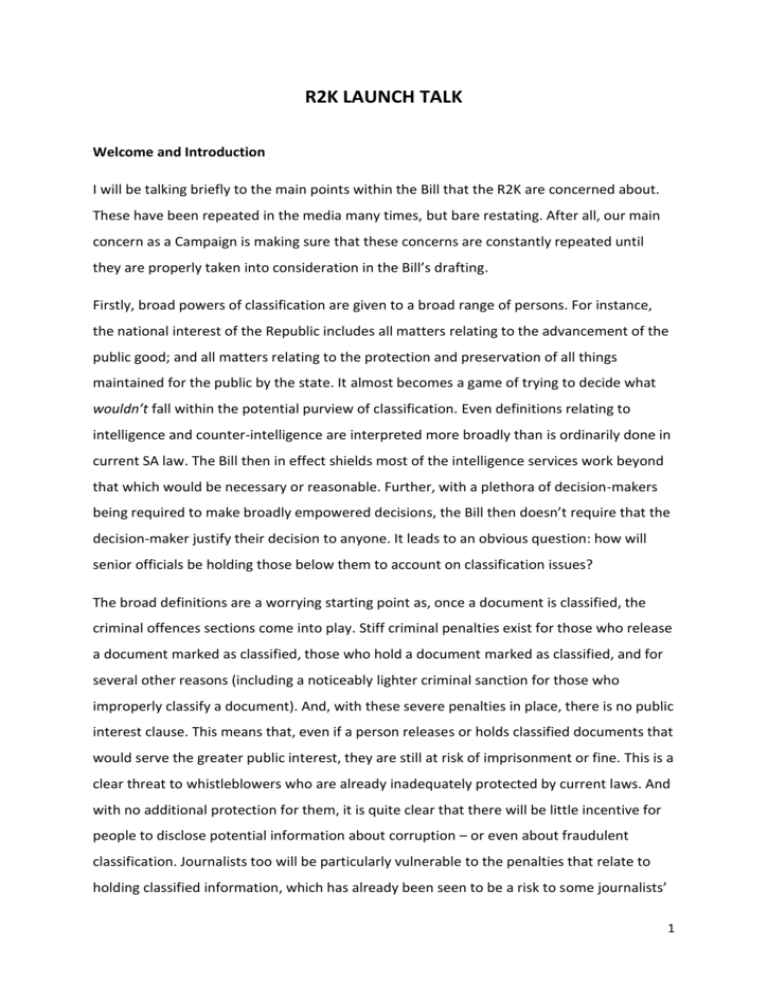
R2K LAUNCH TALK Welcome and Introduction I will be talking briefly to the main points within the Bill that the R2K are concerned about. These have been repeated in the media many times, but bare restating. After all, our main concern as a Campaign is making sure that these concerns are constantly repeated until they are properly taken into consideration in the Bill’s drafting. Firstly, broad powers of classification are given to a broad range of persons. For instance, the national interest of the Republic includes all matters relating to the advancement of the public good; and all matters relating to the protection and preservation of all things maintained for the public by the state. It almost becomes a game of trying to decide what wouldn’t fall within the potential purview of classification. Even definitions relating to intelligence and counter-intelligence are interpreted more broadly than is ordinarily done in current SA law. The Bill then in effect shields most of the intelligence services work beyond that which would be necessary or reasonable. Further, with a plethora of decision-makers being required to make broadly empowered decisions, the Bill then doesn’t require that the decision-maker justify their decision to anyone. It leads to an obvious question: how will senior officials be holding those below them to account on classification issues? The broad definitions are a worrying starting point as, once a document is classified, the criminal offences sections come into play. Stiff criminal penalties exist for those who release a document marked as classified, those who hold a document marked as classified, and for several other reasons (including a noticeably lighter criminal sanction for those who improperly classify a document). And, with these severe penalties in place, there is no public interest clause. This means that, even if a person releases or holds classified documents that would serve the greater public interest, they are still at risk of imprisonment or fine. This is a clear threat to whistleblowers who are already inadequately protected by current laws. And with no additional protection for them, it is quite clear that there will be little incentive for people to disclose potential information about corruption – or even about fraudulent classification. Journalists too will be particularly vulnerable to the penalties that relate to holding classified information, which has already been seen to be a risk to some journalists’ 1 liberty. The chilling effect on information release will be profound – potentially even affecting release under the Promotion of Access to Information Act. A further area of contention, which is also a concern shadowed in relation to the current Promotion of Access to Information Act and the Protection of Personal Information Bill, is the failure to create an independent oversight body. Appeals in regard to classifications are therefore decided by persons within the Department itself. In fact the Minister of State Security, who is essentially tasked by secrecy, becomes the main arbiter of the Bill in its entirety. It is questionable how this can possibly be when a citizen’s right to access information is entrenched and the Promotion of Access to Information Act creates a presumption toward openness in all matters. There are some potentially positive areas of the Bill. For instance, some of the declassification sections have sought to ease the burden on the National Archives. Under the new Bill the holder of information can declassify it. This could prove immensely helpful to the Archives who have previously had to refer back documents to the original classifier, which is often several different departments, to declassify. This leaves them powerless to comply with the timelines under the Promotion of Access to Information Act. However, in spite of giving the Archives numerous new responsibilities, the Bill fails to adequately consider the resources and capacity they have, or make allowances to improve this. I wouldn’t hire a chef and then let him not feed me. Why then are we going to let our elected government obscure things from us that are necessary to know in order to properly monitor their performance? The citizen is as responsible for demanding to know as the government is for letting us know, and it is because of this dual responsibility that the Right to Know Campaign is being launched. 2
